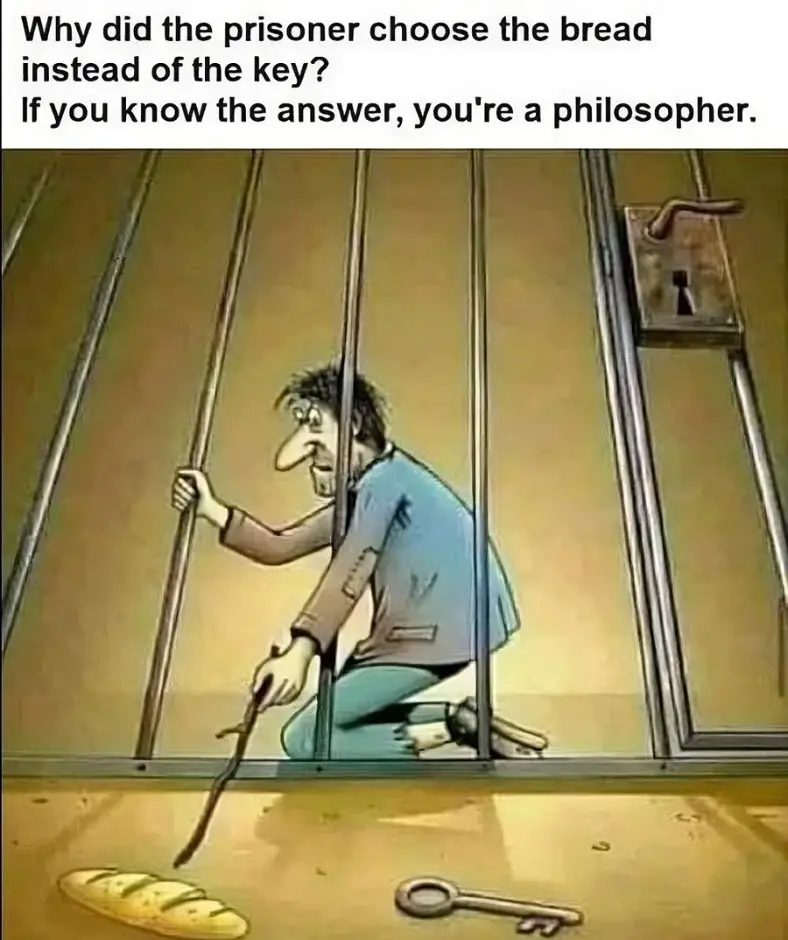In the thought-provoking parable “The Prisoner and the Bread,” a captive faces a pivotal choice: a loaf of bread symbolizing immediate sustenance, or a key representing potential freedom. This narrative delves into the complexities of human decision-making, especially when survival instincts are at odds with the desire for liberty.

Confronted with hunger and exhaustion, the prisoner opts for the bread. This decision underscores a fundamental human tendency to prioritize immediate physiological needs over uncertain future outcomes. The key, while offering a chance at freedom, presents uncertainties and potential dangers beyond the prison walls. In contrast, bread provides a guaranteed solution to the pressing issue of hunger.
Psychologist Abraham Maslow’s hierarchy of needs suggests that basic physiological requirements must be satisfied before individuals can focus on higher-level aspirations like freedom or self-actualization. In this context, the prisoner’s choice reflects a natural human inclination to address immediate survival needs before pursuing broader goals.
Extended deprivation can impair cognitive functions, leading individuals to favor short-term relief over long-term benefits. The prisoner’s selection of bread illustrates how extreme conditions can drive a focus on immediate gratification, even at the expense of potential liberation.
Beyond mere survival, the prisoner might perceive the bread as a tool for future opportunities—perhaps as a means to barter or to sustain himself while devising a more secure escape plan. This perspective adds a layer of strategic thinking to his choice, indicating a nuanced evaluation of his circumstances.
The prisoner’s decision to choose bread over the key serves as a compelling exploration of human nature, highlighting the instinct to secure immediate needs when faced with uncertainty. This parable invites reflection on our own choices: how often do we opt for short-term comfort over long-term fulfillment? Understanding this balance between survival and aspiration can offer valuable insights into human behavior and decision-making.
